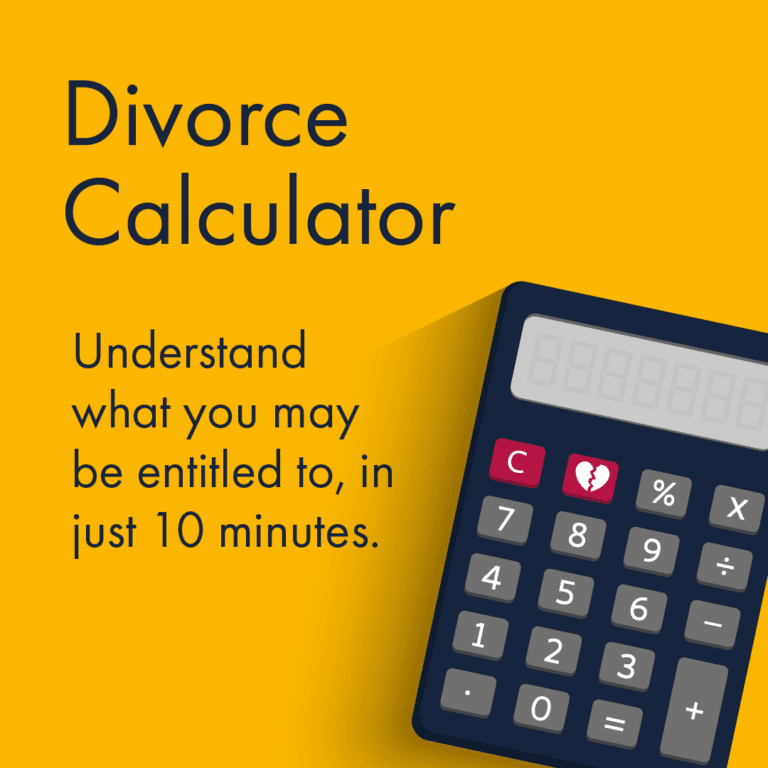 Use the calculator
Use the calculator
What assets can freezing order solicitors freeze?
In theory any assets can be frozen under S37, whether they are owned solely or jointly. It may be the case that one party feels they have sole ownership over an asset, because it is in their name. However, in order to ensure a fair outcome for both parties in financial proceedings, all assets must be accounted for.
Typically the types of assets covered by a freezing order include property and bank accounts. A freezing order can even include assets not yet in existence, like an imminent award of damages for personal injury.
Whilst freezing orders can be extremely effective, they are not always necessary In many cases, the threat to assets will turn out to be idle. In these circumstances, your lawyer can deal with the situation with a robust letter, or an alternative court order which forces your spouse to do (or not to do something) easily dealt with by a robust letter, and an undertaking by the spouse – i.e. a legal promise to do (or not to do) something. It is always best to seek legal advice if you are concerned about your assets. Fast action may need to be taken.
If a more formal approach is required, your lawyer can ask the family court to use its general power to preserve specific family assets. This is usually the more appropriate and cost-effective approach, because such applications are not subject to the same rigorous safeguards as freezing orders.
We offer an award winning service
Common questions about freezing orders in the UK
Common questions about freezing orders in the UK
-
Who makes a freezing order?
Freezing orders/freezing injunctions are typically made by the High Court, but District Judges and Circuit Judges also have jurisdiction to make them.
The court’s jurisdiction to grant a freezing order is derived from Section 37 of the Matrimonial Causes Act 1973.
Freezing orders will be granted in cases where it is just and convenient to but the legal principles behind freezing orders mean that they are only made if the court consider it is ‘just and convenient to do so – in other words, it boils down to whether a particular judge, on any given day, can be persuaded that it is ‘fair’ to make one.
Freezing order applications should not be taken lightly, however they can provide a clear, structured solution where necessary. It is important to seek specialist legal advice from a family lawyer. applications.
-
On what grounds are freezing orders made?
The Court has to be satisfied that the other party is about to sell or otherwise get rid of an asset with the intention of preventing someone else from receiving any financial benefit.
Any application for a freezing order must comply with strict conditions, which include: It is crucial to comply with the strict conditions that apply before trying to obtain a freezing order. These conditions are set out in detail in UL v BK, a 2013 High Court judgment. In summary, the points made within this are:
- The English court must have jurisdiction
- That there is a good, arguable case that refusing to make such an order would create a real risk of injustice
- There must be solid evidence of an intention to get rid of assets, including evidence the assets exist and that there is a risk of dissipation
- Most applications will need the applicant to take responsibility for any costs incurred by their spouse or third parties in the event the applicant was mistaken or untrue
The order must allow the respondent to pay living expenses, debts and legal costs – it cannot cause unnecessary hardship to the respondent
-
How long does a freezing order last?
Freezing orders are usually made pending the resolution of financial proceedings; they are typically granted for somewhere between seven days and two weeks. When the original order has timed out, the court may either extend or discharge it. This means it can last longer in certain circumstances.
-
Freezing order on foreign assets
Usually the assets in question in a freezing order application are located in England and Wales, and threats have been made to move them off-shore, raising the possibility of an application for a domestic A domestic freezing order over assets held in other countries is only likely to be made where it is likely that the foreign courts will cooperate.
However, more and more people hold assets worldwide. In such cases, a worldwide freezing order may be appropriate. However, please note that the criteria for these applications is incredibly strict, and their implementation cannot financially hurt the respondent.
 Download our financial disclosure guide
Download our financial disclosure guide
How do I remove a freezing order?
It is possible to remove a freezing order if you can argue effectively against it, or your solicitor may represent you and prove there is no good, arguable case against you, and no threat to the assets.
read moreHowever, dismissal is usually because the claimant did not correctly comply with the criteria.
What happens if I disobey a freezing order?
Freezing orders are official court orders made under Section 37 of the Matrimonial Causes Act 1973, so someone who disobeys a freezing order is likely to be in contempt of court. If that happens, the offending party can be sent to prison, fined or have their own assets frozen.
Latest advice
Newsletter Sign Up
Sign up for advice on divorce and relationships from our lawyers, divorce coaches and relationship experts.
Privacy Policy


















